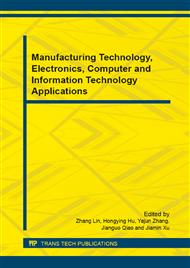p.2648
p.2652
p.2656
p.2660
p.2664
p.2668
p.2672
p.2676
p.2680
A Recommendation Algorithm from the Object Perspective
Abstract:
The purpose of designing recommender systems is to help individual users find relevant information. However, many recommender systems have been facing the challenges of finding niche objects, which users may like but difficult to find due to the lack of sufficient data. In this paper, we propose a recommendation algorithm which takes a niche object as input and outputs a list of users who may be interested it. By this approach, every niche object can be recommended at least one time. Further analysis indicates that those niche objects are usually collected by active users and the owners who are very similar to each other. Therefore, this work has outlined the significant relevance with the challenge, the Long Tail problem, and provided a different perspective to solve it in the field of information filtering.
Info:
Periodical:
Pages:
2664-2667
Citation:
Online since:
November 2014
Authors:
Price:
Сopyright:
© 2014 Trans Tech Publications Ltd. All Rights Reserved
Share:
Citation:


